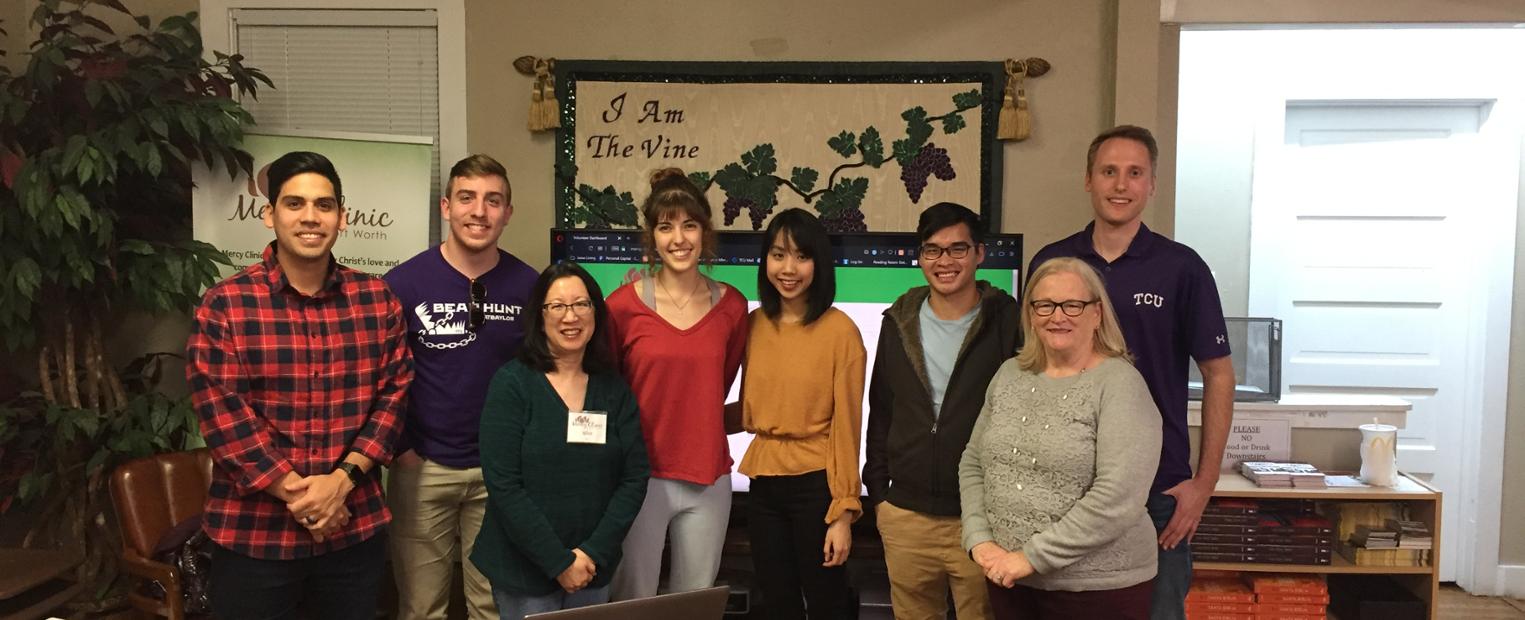Got a problem? The senior capstone course in the computer science department at TCU can design software that will create a solution. This year, one group of the capstone course is working with the Mercy Clinic of Fort Worth to develop a software program to manage and track volunteer hours, making the process more efficient for the organization.
The TCU Department of Computer Science recognizes that going from working in a classroom to working in a career can be quite a change of pace for students. That’s why each fall Bingyang Wei, assistant professor of computer science, encourages his students to work with real clients for their final, year-long project at TCU. These projects are especially rewarding when working with clients who do great things for the community of Fort Worth.
These capstone projects are not just for practice; the course connects lectures and homework to real-world team experience. This type of work is extremely time consuming—like a full-time job. The whole purpose of the capstone course is to encourage students to embrace the struggles and successes that they face so they know how to respond to these types of situations after graduation.
This year, Matt Chumchal, professor and director of the Pre-Health Professions Institute at TCU, connected Wei and his students to the Mercy Clinic to build a software program that could manage the 150 volunteers that come through each month. The Mercy Clinic is a non-profit organization that provides free health care to those uninsured in Fort Worth. The clinic’s current system for tracking volunteer hours is done the old-fashioned way: on pen and paper. Keeping track of all of these papers, decoding people’s handwriting and then logging it into a computer by hand is a tedious task for the employees at the Mercy Clinic when they could be working to provide actual care to patients.
This specific capstone project includes six computer science students: Kenzie Clarke, Nestor Guerrero, Minh Nguyen, Wynn Pho, Warren Riley and Cole Weber. All of the students working on this project are gaining great experience and learning lessons applicable to the working world. Clarke, the team leader for the project, feels that the lessons will stay with her beyond the classroom, “Working on this project has been a blessing—both for my career as a software developer and in my personal life. This project really symbolizes what I want to do in my work: develop software that improves people's quality of life and helps contribute to the community.”
To learn more about this capstone project and follow its progress, visit Team Mercy’s website.
